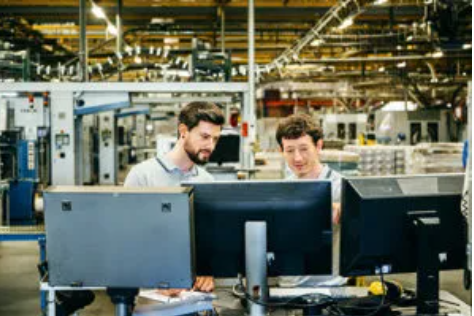Due to the extremely high demand, the complicated nature of the product, and the time-consuming assembly process, automobile manufacturing firms specifically require the use of robots in order to stay competitive with their market peers. In fact, automation in automobile industry goes back a few decades. Automobile manufacturing facilities use a wide range of robotic applications, which reduces the amount of effort and stress among their workers. Each robot is responsible for improving the accuracy and efficiency of a process that a human might not be able to do as well. Techniques that can fully or partially automate business processes via the use of machine learning and artificial intelligence are referred to as intelligent process automation solutions. These are implemented to automate time-consuming business operations that are repetitive in nature. This frees up employees’ schedules to focus more on cognitively challenging work. Organisations get greater levels of efficiency and productivity as well as cost savings on full-time workers when they release employees from doing mundane tasks at work.
Automation in Automobile Industry
The use of automation in automobile industry has been prevalent for decades. Large, ponderous robots that are separated from human workers are typically used in the assembly line for automobiles and trucks. Activities like welding are carried out within those sections that have been cordoned off. In recent times, the automobile sector is again making big strides forward in the adoption of cutting-edge automation solutions. Collaborative robots, often known as cobots, are becoming increasingly popular among automotive manufacturers and suppliers. These machines are typically more compact, possess greater dexterity, and can be reliably placed beside human workers in the assembly line. In addition, the automobile sector has the goal of increasing the use of 3D printing technology in manufacturing. Automobile companies are collaborating closely with leading technology and automation service providers across the world to facilitate the rollout of these innovations on their factory floors.
Intelligent Process Automation Solutions
Intelligent process automation refers to activities that are either fully or partially automated by the application of machine learning and artificial intelligence techniques. The amount of human involvement required in different business processes can be decreased with intelligent process automation tools. However, intelligent process automation solutions extend far beyond carrying out straightforward, rule-based chores, unlike robotic process automation (RPA). For instance, intelligent automation solutions can use artificial intelligence to analyse complex data, which is something that the majority of RPA tools are unable to do. These technologies can also provision IT resources to guarantee that important service level agreements are satisfied. One further illustration may be the application of machine learning techniques, which make it possible for the intelligent process automation tool to enhance its overall performance on the work over time.



